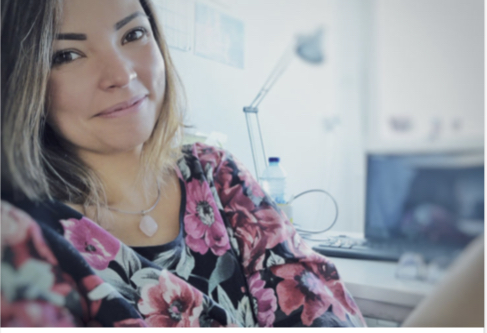I’m sitting in my office, staring at the blank screen of Microsoft Word. I’ve been roaming around, thinking, scrolling, turning my music on and off. I have a book to edit. The whole thing is already written. I “just” need to finish it. It seems like such an easy job, so why the hell am I running away from it for weeks?
Most of us are somewhat familiar with the word procrastination, and even go through it regularly. People who perform intellectual work, using their creativity, their problem-solving skills, often face the mental burden of procrastination.
It became common sense that procrastination is bad for us. On a quick Google search for the word “procrastination”, I found the majority of results have something to do with beating procrastination, overcoming procrastination, stopping procrastination. When I think about it, however, I don’t feel such repulse.
Maybe it’s because I watched this TED Talk about embracing your procrastination instead of fighting it. Maybe it’s because I’ve learned, with other emotions and symptoms, that the key is understanding and learning to live with it, rather than trying to fight it altogether. So, here, I want to make a case on why procrastination isn’t necessarily bad in and of itself, just like so many behaviours and emotions we live with.
Perhaps, offer ways of seeing it as a sign of something that is demanding our attention.
What is procrastination?
- The etymology: procrastination comes from the Latin verb procrastinare, from pro- ‘forward’ + crastinus ‘belonging to tomorrow’ (from cras ‘tomorrow’).
- The dictionary definition: “to put off intentionally and habitually; to put off intentionally the doing of something that should be done”.
- The Wikipedia description: procrastination “is a common human experience involving a delay in everyday chores or even putting off salient tasks such as attending an appointment, submitting a job report or academic assignment, or broaching a stressful issue with a partner. Although typically perceived as a negative trait due to its hindering effect on one’s productivity often associated with depression, low self-esteem, guilt and inadequacy; it can also be considered a wise response to certain demands that could present risky or negative outcomes or require waiting for new information to arrive.”
From my experience and knowledge, procrastination has a deep meaning to it: when you procrastinate, you avoid your fears.
Avoidance is an important word in psychology. “‘Avoidance coping’ refers to choosing your behaviour based on trying to avoid or escape particular thoughts or feelings, as writes Alice Boyes, PhD.
An avoidant person is someone who… well, avoids something. They avoid conflict, interactions, certain situations. This can go from a once in a while response to an actual personality disorder.
Avoidance can be rooted in trauma, on the way you were raised, or you were born with it. But until you realise you have that trait in you somewhere in the spectrum, you might not notice how often you run away from fights, how far you go to avoid a discussion, how ridiculous are the excuses you use to get away from a situation. As with any disorder, avoidance is only perceived as a diagnosis when it causes real issues in your life. Avoidance is, thus, a reaction to fear.
If you’ve ever read about stress, you probably know it is a physiological response to a perceived threat. It can be an actual danger to our lives, or something that threatens our sense of self esteem or belonging.
Our stress responses vary from a fight, flight or freeze. When faced with a threatening situation, our bodies instinctively display one of these reactions. Weird as it sounds, creating something can feel threatening to our nervous system. It uses a part of our brain that is quite recent, evolutionarily speaking.
Creating something feels threatening, and we can fight – keep doing it absolutely nonstop, until it’s over; flight – say no to the opportunity, reject the very thought of doing it; or freeze, paralysing with the screen in front of you.
“Procrastination is essentially irrational,” said Dr. Fuschia Sirois, professor of psychology at the University of Sheffield, to the New York Times. “The thoughts we have about procrastination typically exacerbate our distress and stress, which contribute to further procrastination”.
It is safe to say, thus, that procrastination is a way of coping with our fear.
“Fear of what?”, you ask.
Fear of rejection, fear of failure, fear of what may happen if this thing you’re working on turns out to be terrible. And even crazier: fear that this thing turns out to be really good. (We don’t talk enough about our fears of things actually working out. But trust me, it is there. And it needs to be acknowledged.).
Our nervous systems are not very well equipped to deal with change. That’s why we face so much internal resistance, even when change is good. Every single creative person faces it as well, whether they talk about it or not. There’s even a book about cutting through the resistance for artists.
Besides resistance and fear, procrastination has yet another facet: running away from boredom.
When was the last time you felt bored for more than 10 minutes? Can you recall it?
I doubt it.
We have so many stimuli, so many options. Working in putting together something that wasn’t materialised before (be it a painting, a report, a thesis, a presentation, a poem) requires us to allow ourselves to feel bored for a while. It’s when we allow the silence to come in, when we stay long enough underwater, that we can emerge with something truly meaningful.
We often get distracted with fillings.
Filling our time, filling our lives.
We rarely put too much thought on what we’re doing, we just do it. We just reply 58 emails at once instead of devoting time to one particular, meaningful problem. We post a lot of shallow content on our social media because we heard that we need to have new content every day or week. We spend our time at work doing things that are not valuable, or important, or even healthy, but we just keep going. We tell ourselves we’re doing something, and that should be enough, right?
In addition to all that, there’s another meaningful message of procrastination asking you to give something more time. If you think about it, it makes sense that we procrastinate more, as the world gets faster and faster. It’s like a defence mechanism that tries to keep things at a humanly doable pace.
If you look at the chart below you’ll get what I mean. This is how often the word procrastination has been used according to Google (aka our global collective intelligence gatherer).

We are demanded to do things faster and faster. Yet, the time hasn’t changed its pace. Our bodies still need eight hours of sleep, a couple of hours to digest food. The last software upgrade we received in our brains was tens of millions of years ago.
(BTW, I wrote an essay about pace and the speeding of our lives)
If we plan to write an article in two hours and spend four hours procrastinating, plus two and a half writing, wouldn’t it be wiser to start planning something closer to 7 or 8 hours for that?
Don’t call me crazy yet. It might seem like the world can’t take this, that your boss won’t ever accept it or your clients will yell at you. However, if you think realistically, things do take their time regardless of our wishful thinking. If we promise to deliver a project in three days, and deep down we know it is doable in three weeks, things will drag, you’ll end up in endless approval rounds, errors, and will end up finishing it in three weeks anyway, won’t it? So why not plan ahead? Why not give things the time they need to happen?
Procrastination isn’t just something that can damage our productivity or make us feel like we’re not accomplishing anything. It is a sign of something deeper, something that must be faced sooner or later.
One study found that “higher levels of procrastination and stress were predicted to correlate with poorer mental health status”. Which means, if you procrastinate often, there’s a chance it is affecting your mental health (or the other way around). You’re ignoring something important that is going on with you.
Let me tell you something from firsthand experience: you can’t ignore it forever.
Are you a procrastinator?
There are many ways to procrastinate. Long story short, procrastination is doing anything, anything different from the thing you know is the right thing you must do.
It can be as small as checking your Facebook for half an hour instead of working on your report. It can be as big as filling your days with tasks and obligations that are not in your job description.
If you still don’t know for sure if you’re procrastinating, you can take a 10-question quiz created by psychology educator Kendra Cherry. (My result was: “you probably have a fairly serious problem with procrastination”. Ops.)
The vast majority of the people I know see themselves as procrastinators – which can either mean that I surround myself with this kind of people, or that it is something that affects most of us regularly. In academic settings, studies reported something around 23-52% of undergraduate students struggling with procrastination.
Is your procrastination trying to tell you something?
I mentioned earlier that procrastination is a way of coping with the fear and anxiety of doing something that challenges you, even a little. You probably notice that easy tasks or ones that won’t impact your life are more rarely a victim of your procrastination. As the complexity and the importance of what you’re intending to do grows, though, the weight of procrastination grows heavier and heavier on your shoulders.
How would I know that?
While I write this article, I procrastinate working on my book. When I post on social media, I’m procrastinating writing articles. And when I binge watch Netflix or YouTube, I’m procrastinating pretty much everything else.
You’d expect that, at 32, undergoing all sorts of therapies, taking medication for anxiety and depression, meditating and doing yoga regularly, organising my routine in ways that are healthy for me, I’d successfully overcome my procrastination.
You’d be very wrong.
I’ve felt so frustrated with myself already that I just can’t take anymore. I’ve beaten up myself in all of my “wrong” emotions and behaviours time and time again, only to realise there’s no way around, only through them.
If you want to end procrastination, I’m not sure you ever will, to be honest. Hoping that can lead to frustration. It doesn’t help. What you can do, and will make your life better, though, is to listen to it. Understand why you’re procrastinating and then work towards that.
Here are some reasons I’ve procrastinated throughout my life:
- Because I didn’t want to be doing the thing at all: I once agreed on creating a new template for a report. I was already burned out, and I already didn’t believe at all in what I was doing. It would take me weeks, months, to put up one damn column in a spreadsheet. I’d deliver entire projects, manage a team, put down fires in the operation, listen to my colleagues lamenting on every aspect of the work, but I would not sit and touch the f*cking spreadsheet. Had I understood and accepted what was happening, I am sure I could have delegated and it would get done faster and better. That would have saved hours of my days and countless mental space, and significantly reduced my already chronic stress. What my procrastination was telling me: to say no to the task, to reflect on my role and responsibilities. How I could have used this symptom to my benefit: delegating it, or defining a boundary of time and energy I’d invest in this from the start.
- Because I really really want to be doing the thing, so much that I am afraid of screwing it up: I’ve always loved teaching and speaking at events. Creating presentations was my gig. At the same time, it was torture. I’d wait until hours before the workshop, lecture or keynote, sometimes finish it on the plane. Here, the opposite was happening: I really, really wanted to do that, but because of that, I’d put a sh*tload of pressure on myself that it had to be the best thing ever witnessed by the people in that room. What my procrastination was telling me: that I really cared about this challenge. Therefore, it was okay to plan loads of time to deliver it. I mean, as much time as possible. That I had to be fit to do it (you know, sleeping enough, relaxed). That I wanted to make it right. How I could have used this symptom to my benefit: realising that my perfectionism would be through the roof and acknowledging that could be positive if I didn’t let it get the best of me. Organise each project with detailed tasks that would release my overwhelm and give me the sense that I am moving forward, little by little. And being okay with being afraid, understanding it is an instinctive response from an ancient part of my brain and showing compassion to myself in this process. On this specific aspect, a study from Pamukkale University, Turkey, evidenced a correlation between procrastination and self-esteem.
- Because I have too many things on my plate at the same time, so I can’t even discern what really matters: This has happened at the same time as both ones from above, but it has also been going on recently. Even though I haven’t got nearly as much stuff to do as I used to, I still often feel like juggling several plates and dropping all of them at the same time. Because I can’t tell exactly which of them really matter to me, I end up giving a little bit of myself to each of these projects: the book, the blog, the podcast, videos, awareness projects, events and services. I keep on getting new ideas by the day, registering new domains for new projects that seem great, and not exactly following through with none of them. So, I end up with podcast recordings sitting in my computer for months, with a raw book waiting to be edited, with a blog I don’t update in ages and an unclear offering. What my procrastination might be telling me: I must understand what is the ONE thing that truly matters, and then put my energy there. I can’t be a podcaster AND writer AND whatever else with the same devotion and capacity. That doesn’t mean I need to throw everything else out the window: it means that, at this moment, I gotta have one priority. How I can use this symptom to my benefit: In a recent keynote in the Netherlands, writer Elizabeth Gilbert said something very wise. She said we gotta know what is our best hour when we’re working the sharpest, the best. If we’re honest, we know we don’t get much more than a one really, really good hour a day. So we need to find where it is. And then use that hour for ourselves. For our dream project. For the thing that makes our heart sing. All the other 23 hours (15, considering you sleep properly), you can give around to the world, and as she says herself, you can give yourhalf-assed self to the other stuff. Damn, you should. Your half-assed version is still so much better than you think. So, perhaps I need to take her advice. How can I use this symptom to my benefit: creating clear boundaries of what gets my full self and what gets my half-assed self. Nobody needs to know what is what. I’ve tried giving my half-assed self to projects and people can’t tell the difference. They can only tell if I am emotionally destroyed or physically ill: if I’m taking care of myself, using my best hour for my priority, my half-ass is still pretty good. And I am sure yours is, too. Also, not rushing to do everything at once is important. Understanding that you don’t need to do absolutely everything all the time will keep you sane, trust me.
One thing I’d encourage you to do is to notice what things you don’t procrastinate.
For instance, when I feel inspired to write something, I don’t procrastinate it. Ever. I find a way to go write. When I am clear about my priorities, I understand that my writing is the absolute priority in my life and everything else comes in second. Everything else is a support to my writing. Just this shift of mindset is already helpful. I also don’t procrastinate talking to people – because my commitment to others is one of the strongest motivators I’ve got in me.
Why should we reflect on our procrastinating behaviours?
The very understanding that the goosebumps and the fear are normal physiological reactions of my body and brain helps me foster compassion with myself. To accept when I do procrastinate, and do not punish myself so much for it.
Reflecting on our procrastination and nurturing this compassion is powerful. A study found that students who were able to forgive themselves ended up procrastinating less in the future. Self-forgiveness is known to help move past challenging behaviours, such as addiction.
“Procrastination is an emotion regulation problem, not a time management problem,” said Dr. Tim Pychyl, professor of psychology and member of the Procrastination Research Group at Carleton University in Ottawa.
The message is: whenever you can, pay attention to your procrastination. What emotions arise from it?
Ask your procrastination: are you here because I’m afraid? Because I didn’t want to be doing this thing? Because I am overwhelmed? When you find the closest answer, think about what you can do about it. What would be the most helpful at the moment?
It can be scrolling on social media for a couple of minutes, watching something, going for a walk or cleaning the house. Stepping out of your activity, turns out, is incredibly helpful for problem-solving. It activates a different part of your brain that will make sense of things it wouldn’t if you were 100% focused on it the whole time. Resting your mind is also good: when you let go of your plans and say, fuck it, the managerial part of your brain takes a break, which is actually good for you.
Just pay attention to yourself and how you navigate this: you do know when it’s good enough and when it’s too much. I can say that half an hour of social media is more than enough, but for you, it’s actually five minutes – or five hours, who knows?! Make sure you’re keeping your commitments with others. Make space for these diversions in your planning – if you’re already going to procrastinate for five hours, then add those fucking hours to your schedule and to them intentionally.
Procrastination in itself isn’t necessarily bad – I’d say it is a part of the creative process. Some epiphanies came during times of procrastination. Brené Brown got to the brilliant quote by Roosevelt that led to her amazing book Daring Greatly, on a day of binge-watching and loads of procrastination, as she mentions at the beginning of her Netflix special.
I am not saying procrastination is good either: the risk is when you are mindless about it. It matters less whether procrastinating is good or bad, and more what we do about it.
I am often thankful for my procrastination, to be honest. I always learn something that might be useful or not while at it; I rest; and, when I realise I’m procrastinating and start to feel bad for it, I also investigate why, and that is worth the process already. I’ve been learning valuable lessons from it, and I’m learning to live through procrastination instead of setting myself to failure by trying to beat it.
What is your procrastination trying to tell you?
References mentioned in this article:
- [TED Talk] Inside the mind of a master procrastinator, Tim Urban
- [Web Page] The etymology of the word “procrastination”
- [Web Page] Procrastination: definition by the Merriam-Webster dictionary
- [Wikipedia Page] Procrastination
- [Web Article] Why avoidance coping is the most important factor in anxiety, by Alice Boyes, PhD.
- [Research Paper] Avoidant personality disorder: current insights, by Lisa Lampe and Gin S Malhi
- [Video] Trauma and the Brain, by the National Health System of Lanarkshire, Scotland
- [Web Article] Why You Procrastinate (It Has Nothing to Do With Self-Control), by Charlotte Lieberman
- [Book] War of Art, by Steven Pressfield
- [Graph] Usage of the word “procrastinate” through the centuries, using Google Books Database
- [LinkedIn Article] What is your REAL pace?, by Carol Miltersteiner
- [Research Paper] Evolution of the neocortex: Perspective from developmental biology, by Pasko Rakic
- [Research Paper] “I’ll go to therapy, eventually”: Procrastination, stress and mental health, by Rebecca Stead, Matthew J. Shanahan and Richard W.J.Neufeld
- [Online Quiz] Gauge Your Procrastination Habit With a Simple Quiz, by Kendra Cherry 43
- [Research Paper] Procrastination, Self-Esteem, Academic Performance, and Well Being: A Moderated Mediation Model, by Erdinç Duru & Murat Balkis, Pamukkale University, Turkeye
- [Book] Daring Greatly, by Brené Brown










